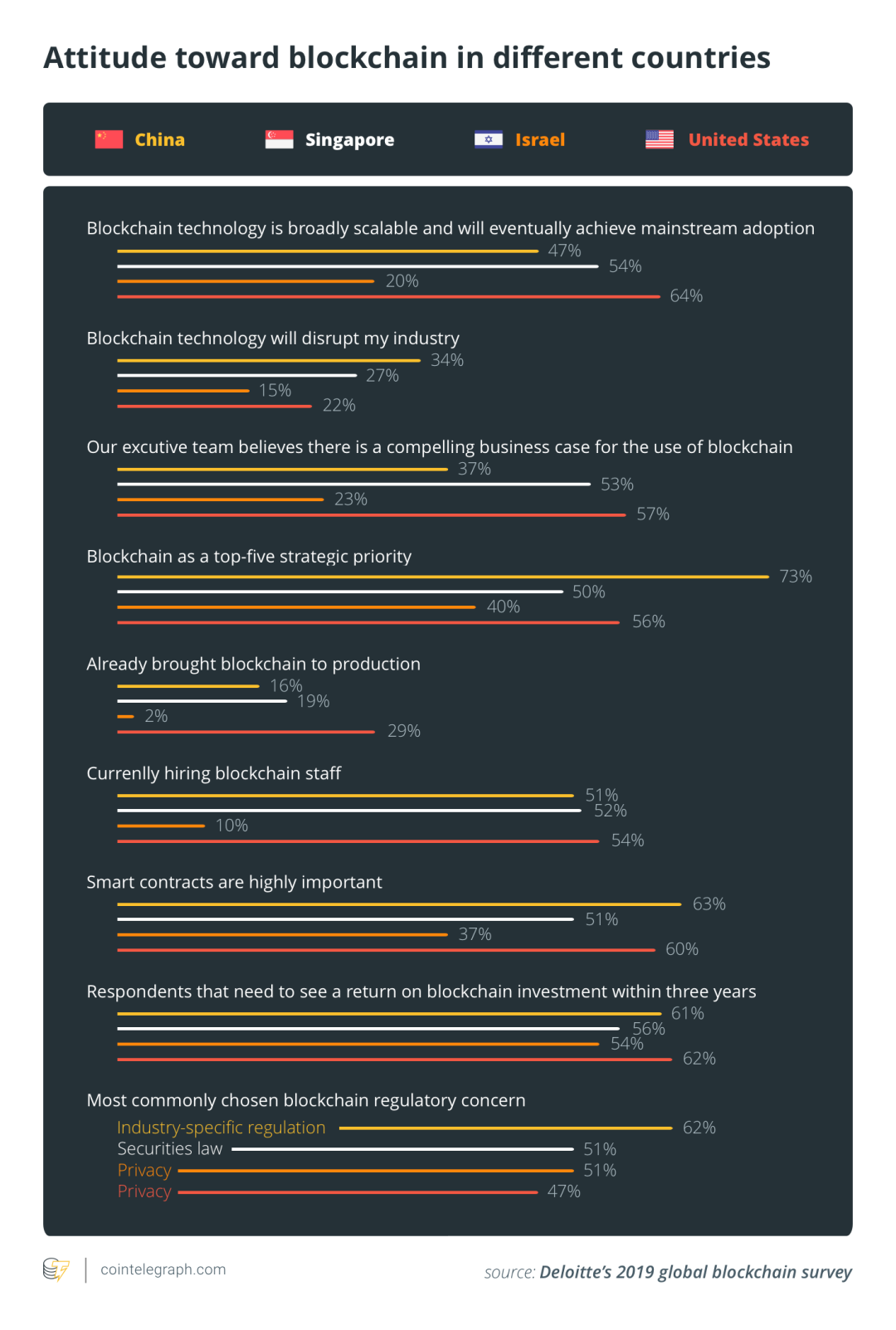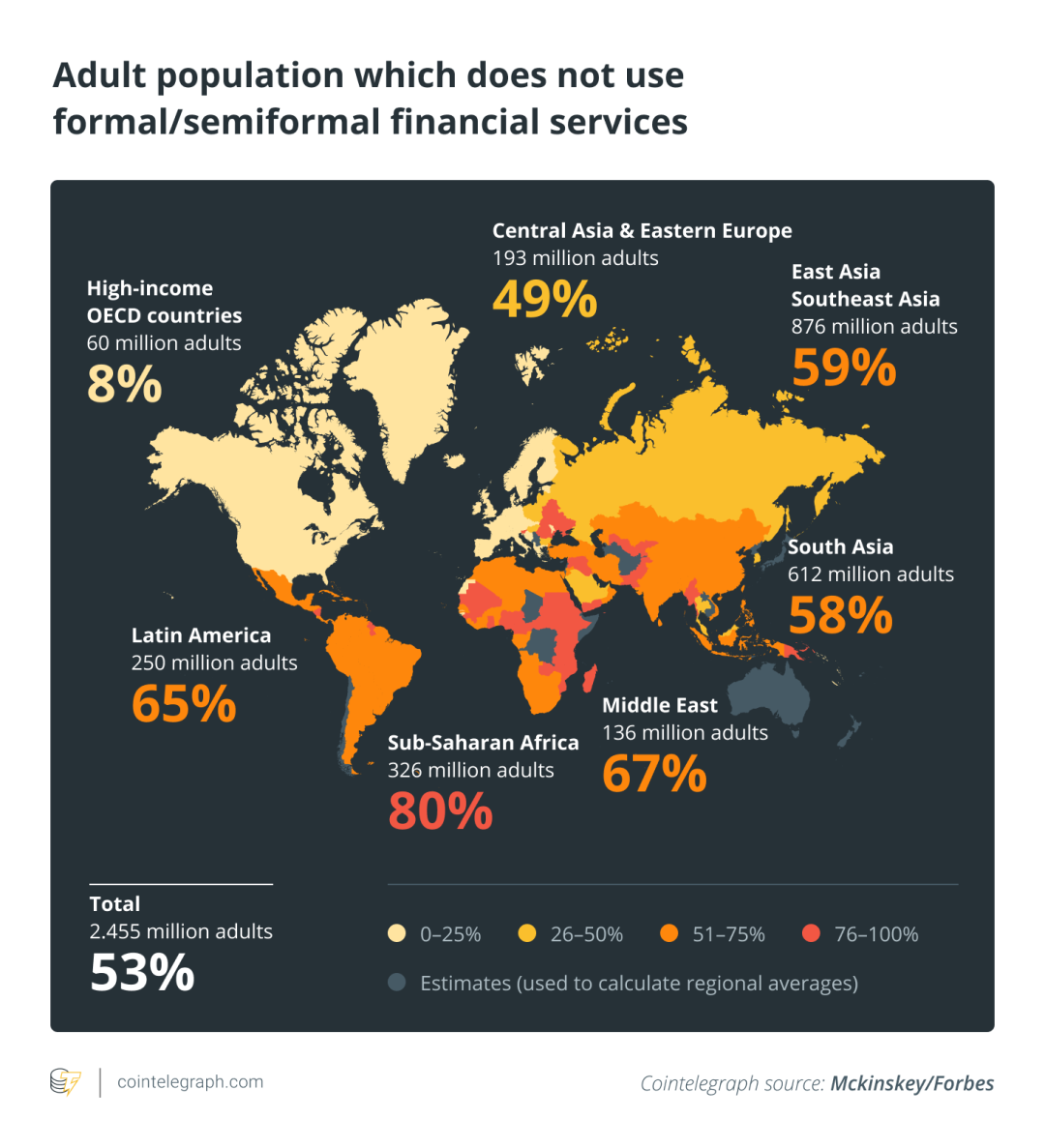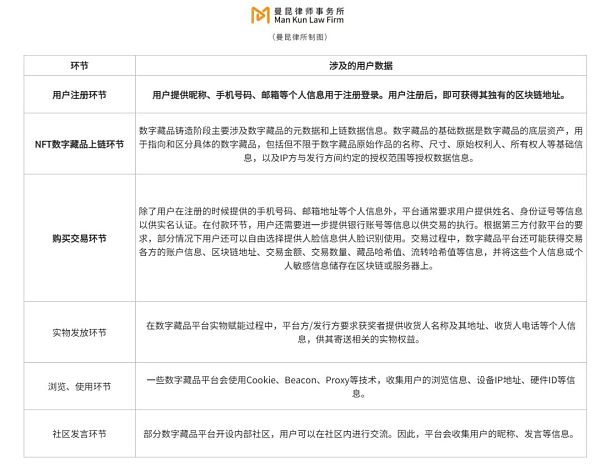Global blockchain status: Asia is the most competitive, and Africa is the largest target market?
Author: Joseph Birch
Translator: Sambodhi
Source: Blockchain Outpost
Globally, the adoption of blockchain technology has exploded. However, although this technology has many fans, the spread of technology has never been balanced. The adoption of blockchain is limited by many factors, including the development of infrastructure, local resources and supervision.
- Observation | Xiong'an Blockchain's 3rd Anniversary: From the first tree with an "identity card" to the official opening of the blockchain laboratory
- Yao Qian: Three major scenarios and solutions in which blockchain may be applied to central bank digital currency
- Video | Chen Xiaohua: Two attributes, six dimensions, and one center of the blockchain
As with the spread of any emerging technology, there will always be some regions ahead of others. Rado Dragov, head of blockchain at Intermational Data Corporation (IDC) explained that there are many factors that can create favorable conditions for adoption, ranging from investment to talent:
In addition to these factors, blockchain investment is largely influenced by current and upcoming regulations and the government ’s overall attitude towards this technology. In some cases, the lack of regulation, this uncertainty may scare away many investors. By adopting business-friendly regulations, some European countries, such as Switzerland, Estonia, and Malta, have become fertile ground for many blockchain startups.
Dragov added that although blockchain investment is growing steadily, it still lags behind other technology investments in the information and communications technology field:
International Data Corporation once predicted that blockchain spending in 2019 will reach US $ 2.7 billion, an increase of 80% from 2018. Although the current growth rate is considerable, it still accounts for only a small portion of total ICT expenditures. In contrast, International Data Corporation expects ICT investment in new technologies (Internet of Things, Artificial Intelligence, AR / VR) to reach USD 961 billion in 2019.
the Middle East
The Middle East is an emerging technology center. Many countries in the Middle East, especially the smaller oil-producing countries, have their own free economic zones dedicated to promoting technological development and innovation. There are 45 such free economic zones in the United Arab Emirates alone, and both Saudi Arabia and Oman are rapidly developing their own free economic zones. Saba Kifle of Devcon in Miami told Cointelegraph that governments in the Middle East and Africa are incubating blockchain projects to make the most of these free economic zones:
Ultimately, government agencies in these regions have invested heavily in understanding how blockchain and digital currency can improve the economic prospects in their region. More importantly, they have taken sensible and prudent measures to establish a regulatory sandbox to test how these technologies will affect these countries.
The development of the Middle East and Africa is bound to increase. A report released by International Data Corporation in February predicted that in the next four years, governments in the region will witness a 400% surge in blockchain investment.
The report found that the expenditures of countries in the Middle East will increase from 21 million US dollars in 2019 to 105 million US dollars in 2023, with a compound annual growth rate of approximately 50%. According to the report, authorities in various countries in the Middle East are keen to explore blockchain solutions to address fraud, security and public administration.
Despite the impressive surge in blockchain investment, Jyoti Lalchandani, vice president and regional general manager of the International Data Corporation Middle East, Turkey and Africa, said that governments in the Middle East are not currently prepared for major digital transformation :
Governments in the region are facing increasing pressure to improve efficiency and effectiveness. Whether looking for ways to integrate 5G, artificial intelligence and blockchain, or to prevent digital trust from being compromised, government agencies have a new set of IT skills to learn.
According to Deloitte's blockchain adoption report, development is not limited to Gulf Coast countries. The data shows that Israel has a large number of blockchain activities, mainly concentrated on digital assets. Other Israeli use cases have been extended to DNA storage, diamond registration, cybersecurity, and international shipping.
In the Israeli blockchain environment, there is a notable trend that government behavior is changing from a regulatory role to a user role. The report found that the Israeli Securities Authority has begun to apply blockchain technology to its information system. Hagai Zachor, Deloitte's Israeli strategy manager and head of blockchain, said that Israel is becoming a regional leader in blockchain-based projects, which is not surprising:
Given Israel ’s strengths in intelligence collection and analysis, security, and cryptography, it can become one of the leading countries in the crypto revolution and maintain a leading position in blockchain-based data security and traceability today. Strange.
Despite the challenges facing governments in the Middle East, Kifle believes that with the support of the governments of the Middle East and North Africa countries, blockchain projects are on the rise in these regions:
Governments in the Middle East and North Africa region are developing policies and legislation for blockchain-based projects and the most well-known digital currencies and other financial products. This level of support allows banks to develop blockchain-driven transaction systems.

Europe
With a single market, Europe has become one of the most important financial hot spots in the world. The regulatory environment in Europe is very developed, and emerging technologies have received strong support both academically and politically. In addition, the EU is also interested in blockchain. As an EU executive body, the European Commission is actively exploring ways to implement this technology.
For example, the European Union launched the European Blockchain Partnership in April 2018, which operates at the political level of all member states of the European Economic Area. The countries that have signed the declaration are working hard to implement blockchain solutions to benefit their citizens, society and economy.
The European Blockchain Partnership will deploy a distributed network of blockchain nodes across Europe. The committee also strives to ensure public-private cooperation in the blockchain field and established the International Association for Trusted Blockchain Applicatio (INATBA) in April 2019. Although many other regions are seeking to implement blockchain, Marc Tavener, executive director of the International Trusted Blockchain Application Association, outlined his point to Cointelegraph that Europe has a leading advantage:
We are seeing continued investment (public and private), which will give Europe a competitive advantage in how governments, companies and institutions implement this technology.
Tavener told Cointelegraph that the EU's competitive advantage stems from its early attention and positive attitude to the benefits this technology can bring:
The EU is one of the earliest and most active adaptors of blockchain technology, which is a way to stimulate digital innovation and benefit the public and private sectors. For example, Estonia has been testing blockchain technology since 2008. Since 2012, the blockchain has been in operation in many registries in Estonia.
Dragov of the International Data Center told Cointelegraph that certain industries in Europe are actively promoting investment in blockchain, from manufacturing to banking:
Looking ahead to Europe, we expect that by 2023, the top five industries with the highest compound annual growth rate will be: process manufacturing, professional services, retail, discrete manufacturing, and banking. Although blockchain solutions are spreading across industries, we expect that the financial sector will continue to attract the highest amount of blockchain investment.
United States
The United States has the most developed regulatory environment, strong academic support, and a long history of supporting technological development. Therefore, the United States is fertile ground for various emerging technologies. Therefore, it is not surprising that the United States is the country with the most blockchain investments. Dragov explained to Cointelegraph that the US investment in blockchain in 2019 was close to US $ 1.1 billion, much higher than Western Europe ’s US $ 661 million, and China ’s US $ 304 million dwarfed it.
Jeff Barroga, CEO and founder of Paxful Exchange, outlined his views to Cointelegraph. He said that not only North America dominated the adoption of blockchain, but as more government officials began to accept this technology, this The trend may also increase:
Governments in North America are racing to use the technology behind decentralized ledgers to modernize military warehousing, help law enforcement, verify government contract bids, and increase the transparency of government funding. As more and more elected officials finally view blockchain technology with a positive eye, it can be expected that more pilot projects will be launched in the coming months.
Barroga told Cointelegraph that as actual use cases grow, the blockchain will eventually get rid of the reputational risks associated with cryptocurrencies, because “financial departments will eventually use blockchain technology to improve process efficiency and reduce process efficiency by using smart contracts that are automatically executed. cost."
China and East Asia
Asia is one of the most competitive markets for global technology projects because they play a central role in driving economic growth in the region ’s largest economies, such as China and Singapore. Therefore, governments of all countries are more open to the benefits that emerging technologies can bring.
According to Deloitte's report, the Singaporean government highly supports blockchain platforms because of their potential for future financial development. The report also pointed out that the Monetary Authority of Singapore also described blockchain technology as the "fundamental" of its economic development.
As far as the development of blockchain is concerned, China cannot be ignored. Since Chinese President Xi Jinping issued a landmark statement that praised the importance of blockchain technology to China's future economic prospects, China is likely to try to replace the United States and become the world leader in blockchain investment.
Due to the unpredictable legal environment of encryption and blockchain projects in China, and the limited public information, it is difficult to assess the actual level of adoption of the technology in China.
Nonetheless, Deloitte's report points out that the information technology-related part of the Chinese government's "Thirteenth Five-Year Plan" lists blockchain as "a key driver of economic development." The report also found that the real economy and fintech are two industries that may find long-term public function applications in China.
In the Deloitte survey, 73% of respondents said that blockchain is one of the five key priorities in China. Another 34% of respondents said they believe in the disruptive potential of blockchain.
China has a huge advantage in the number of blockchain patents. The author of the report speculates that China will continue to be the leader in the development of blockchain, while the United States will rank second. Paul Sin, consulting partner of Deloitte Consulting Co., Ltd. and head of the Deloitte Asia-Pacific Blockchain Lab, said that China is likely to become a global leader in strategic blockchain applications:
Compared to anywhere else in the world, China will apply blockchain strategically rather than tactically. More projects are driven by senior management, who use blockchain as a strategic weapon rather than a productivity tool.
According to data from International Data Corporation, by 2022, blockchain spending across the Asia-Pacific region (excluding Japan) is expected to reach US $ 2.4 billion. The report predicts that blockchain spending will increase significantly, and it is expected to reach about US $ 523.8 million in 2019, an increase of 83.9% from US $ 284.8 million in 2018. International Data Corporation estimates that between 2018 and 2022, the five-year compound annual growth rate will be 77.5%.
The report found that the Asia-Pacific region (excluding Japan) accounted for 18.4% of total global blockchain technology spending in 2019, ranking third, second only to Western Europe (23.7%) and the United States (37.7%). Chinese spending in the region accounts for about 70%.
Africa
Africa is the target market for some of the largest and best companies in the industry. Facebook ’s Libra project has great potential to affect a large number of African users in this social network without bank accounts. Jack Dorsey, CEO of Twitter and Square, once said a famous saying: "The future of Bitcoin will be defined by Africa." He also said that he will spend six months in Africa in 2020.
Many comments on Africa rightly mentioned that due to the colonial occupation of generations, Africa did not occupy a place in the previous industrial revolution. As a result, many African countries have underdeveloped infrastructure. Up to 80% of the population in sub-Saharan Africa uses neither formal financial services nor semi-formal financial services.

According to Akin Sawyerr, the head of Decred cryptocurrency Africa and strategic developer, this is exactly why blockchain has so much potential for adoption in Africa. Sawyerr told Cointelegraph that as mainstream financial institutions ignore groups without bank accounts, decentralized financing may play an important role in Africa ’s fourth industrial revolution:
Sub-Saharan Africa has made significant progress in the development and use of blockchain networks, and I expect that the region will be the first to adopt blockchain networks for a variety of reasons. The World Bank believes that about 60% to 70% of sub-Saharan Africa has no bank account. Non-bank users are not a viable goal for traditional financial institutions, because most people live on less than $ 3 a day and are not a profitable part of the market.
Paxful's Barroga also pointed out that blockchain technology has the potential to reach non-bank users. Explaining the existing digital nature of many transactions in Africa, Barroga told Cointelegraph that Africa is a fertile market full of practical cases:
Given the economic instability and weak banking system in sub-Saharan Africa, paving the way for digital and mobile payments is an alternative solution acceptable to the people of the African continent. Most transactions on the African continent are digital transactions, and the vast majority of adults hold some type of electronic wallet: this is a good sign that African families may be more open to new technologies.
Blockchain in Africa not only represents a way for people to better manage and consume, but also a way to make money. The population of many African countries is growing. By the next century, 13 of the 20 most populous cities in the world will be located in Africa. Sawyerr explained that many young Africans see blockchain as their future career path:
Finally, Sub-Saharan Africa has a very young and dynamic population, who believe that technology, especially software development, is a viable way of earning a living, not just local employment opportunities.
Latin America
Latin America is witnessing the rapid growth of cryptocurrency and blockchain applications. From the BRIC countries discussing sharing cryptocurrencies to get rid of their dependence on the US dollar, to the Venezuelan Nicolas Maduro regime trying to impose oil-backed “cryptocurrencies” on the troubled people, the Latin American region has been exploring new uses.
Elean Huesca, head of Decred ’s Latin American business, told Cointelegraph that the diversified financial and technical use cases in the region are driving the proliferation of cryptocurrency and blockchain projects: “An important reason for this is that the use cases of cryptocurrencies are diverse, From remittances, investments and savings, to currency alternatives to combat hyperinflation. "
The Middle East and China are not the only regions using special economic zones to develop blockchain technology. Huesca told Cointelegraph that Uruguay is becoming a hub for crypto and blockchain companies:
They are exploring the use of existing economic free trade zones to create a crypto-friendly hub to attract crypto companies, talent and innovation. They are effectively using their economic advantages and development momentum to become a reference for the development of blockchain in the region.
Will there be confusion?
Although there are a large number of use cases around the world, blockchain technology still faces many problems, which hinder the wider application of blockchain. Since blockchain technology is still relatively new and development speeds vary, interoperability may become a problem. The International Trusted Blockchain Application Association told Cointelegraph:
However, this issue is being resolved in an open and private dialogue. Therefore, although we see some credible challenges, we also see participants intervening to solve these challenges and ensure that this technology can continue to develop.
One of the most important criticisms of blockchain is its huge energy cost. But this situation may soon change. Tavener said that both the public and private sectors are working hard to solve the problem of low energy efficiency, and they are "focused on finding sustainable solutions to reduce the energy use of blockchain data centers and improve productivity and efficiency."
Finally, according to the spokesperson of the ISO / TC 307 leadership group of the International Standards Organization (ISO), the lack of general regulations or standards has hindered the development of the blockchain, adding:
Blockchain technology depends on each other and depends on today's legal, commercial, and social realities. The interdependence between these links and other technologies requires interdependence and interoperability between standards.
about the author:
Joseph Birch, a freelance writer, is interested in how blockchain can fundamentally change the world we live in and the transformative power of encryption.
We will continue to update Blocking; if you have any questions or suggestions, please contact us!
Was this article helpful?
93 out of 132 found this helpful
Related articles
- The application prospect of blockchain technology in sudden public safety incidents: how to realize "digital city governance" and "digital epidemic prevention"?
- Fragmented identity data, reshaped on the blockchain
- Industry Blockchain Weekly | Blockchain project selected as a typical case of the Ministry of Justice
- Inventory of China's four major trade areas: what has the blockchain "horse enclosure" done over the years?
- Global assets seek anchor under the crisis, which may become the starting point of Bitcoin's eternal bull market
- MakerDAO founder: The foundation will be dissolved in two years, and the preliminary draft of the governance transfer plan will be announced next week
- European Central Bank Market Infrastructure and Payment Division Director: CBDC's main risks and problems are bank disintermediation






